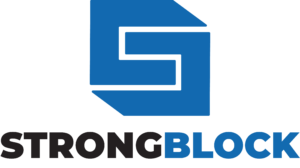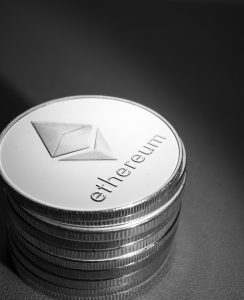
Hive Investments
Hive Investments The Next Generation Of DeFi-As-A-Service (DaaS) | Cryptonairz AMA Hive Investments is a next generation DeFi-as-a-Service (Daas) protocol with NFTs designed to generate
Home » Crypto News & Education » Cryptocurrency Passive Income – DeFi » Decentralized Finance

The decentralized finance (DeFi) space has seen explosive growth in recent months. In fact, the total value locked in DeFi protocols has reached over $13 billion. This comprehensive guide will provide you with key facts about DeFi. Specifically, we’ll look at what it is, how it works, and some of the most popular protocols in the space.
Decentralized finance, or DeFi for short, is a term used to describe the shift from traditional, centralized financial systems to peer-to-peer finance enabled by decentralized technologies. Conversely, DeFi is a catch-all term for the various financial protocols and platforms that have been built on Ethereum. Stablecoins, synthetic assets, lending platforms, and decentralized exchanges are all examples of DeFi applications.
DeFi is important because it represents a paradigm shift in the way we think about financial infrastructure. For the first time, users can access a wide range of financial services without having to trust a centralized institution. This has the potential to upend traditional finance. It also has the potential to provide financial inclusion to billions of people around the world who have been excluded from the traditional financial system.
In traditional finance, financial institutions like banks act as intermediaries between savers and borrowers. This centralized model is inefficient and prone to counterparty risk. In a decentralized system, however, there is no need for a central intermediary. Instead, transactions are carried out directly between users (peer-to-peer) without the need for a third party.
By moving financial services to blockchains (such as Ethereum), DeFi protocols can offer a number of advantages over traditional finance:
DeFi benefits are not just theoretical — they are already being realized by users today. For example, MakerDAO is a protocol that allows users to collateralize Ethereum and mint stablecoins. This has enabled users to hedge against the volatility of Ethereum and other cryptocurrencies. It has also provided a way for people to access US dollars without having to go through a traditional bank.
Here are some of the ways people are using DeFi today:
DeFi protocols typically make use of smart contracts to automate the process of lending, borrowing, and trading. Smart contracts are self-executing agreements that are written in code and stored on a blockchain. For example, a lending protocol built on Ethereum could use a smart contract to automatically lend out money to borrowers and collect interest payments. This all happens without the need for a centralized authority, such as a bank.
Because DeFi protocols are built on blockchains, they can take advantage of the existing infrastructure. This includes its decentralized network of nodes, its decentralized storage (IPFS), and its decentralized computing (for example: Ethereum Virtual Machine). This infrastructure enables DeFi protocols to offer a wide range of features, including:
There are currently hundreds of different DeFi protocols, with new ones being launched all the time. Some of the most popular protocols in the space include MakerDAO, Compound, Synthetix, and Aave.
These protocols have become so popular because they offer a wide range of features and services that can be accessed by anyone with a digital wallet.

DeFi is still a nascent technology and as such, it is subject to a number of risks. These risks include:
If you’re interested in getting started with DeFi, the best place to start is by using a wallet, such as: MetaMask, Trust Wallet, Coinbase, and WalletConnect. This will allow you to interact with DeFi protocols and use them to lend, borrow, trade, or invest. Once you have a wallet, you can start exploring the different DeFi protocols that are available. MakerDAO, Compound, and Synthetix are all good places to start.
DeFi is a new and exciting space. It also offers a wide range of benefits and features. However, it is also subject to a number of risks. So, if you’re interested in getting started with DeFi, be sure to do your research and understand the risks involved.

Hive Investments The Next Generation Of DeFi-As-A-Service (DaaS) | Cryptonairz AMA Hive Investments is a next generation DeFi-as-a-Service (Daas) protocol with NFTs designed to generate

Sidechain Hustle Will The Sidechain Be The Solution As Blockchains Start to Scale? As more and more people begin to invest and advocate for cryptocurrency,

Blockchain Bridges How to Take Advantage of Blockchain Bridges – One of the keys to DeFi The blockchain has proven itself as a real game

Verasity Bringing Crypto To eSports & Advertising – Verasity | Cryptonairz AMA Verasity’s mission is to significantly increase engagement and monetization for video publishers on

The Top 7 Decentralized Exchanges Discover What is a Decentralized Exchange and the top ones you should try A decentralized exchange is a crypto exchange

Binance Smart Chain How Binance Smart Chain has become one of the most reliable investments for 2022 2022 is proving to be a crucial

The Cronos Blockchain How Cronos could change the game in mainstream investment for cryptocurrency Cronos is a blockchain network that has shown tremendous potential. The

The Ethereum Blockchain Discover the benefits of Ethereum including the proliferation of Decentralized Finance If you’re looking to get started with Decentralized Finance (DeFi), Ethereum